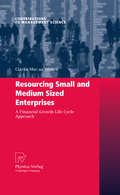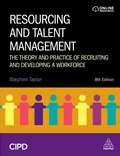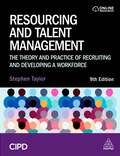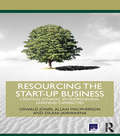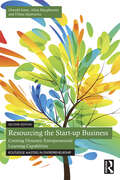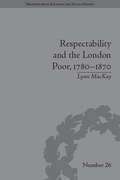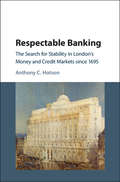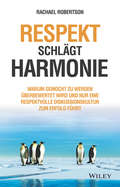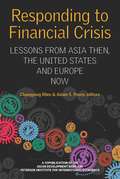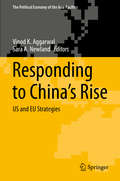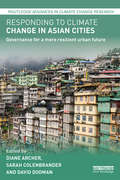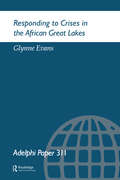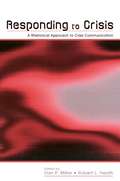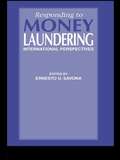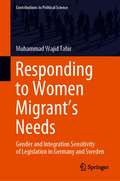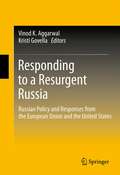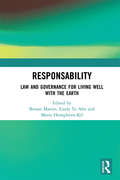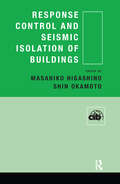- Table View
- List View
Resources: The Essence of Corporate Advantage
by Cynthia A. MontgomeryIntroduces the idea that a firm's resources are at the heart of corporate advantage. Identifies six characteristics of a resource that together describe its potential for creating value for the firm.
Resourcing Small and Medium Sized Enterprises: A Financial Growth Life Cycle Approach
by Ciarán Mac an BhairdIn a world of increasing financial uncertainty and growing unemployment, the macroeconomic contribution of SMEs is more important than ever. Development of a vibrant, sustainable small firm sector is dependent on sufficient resourcing of SMEs, particularly adequate capitalisation. This book provides a timely examination of SME financing and determinants of capital structure. A special feature of this book is the novel methodological approach adopted, providing an innovative perspective on SME financing. Analysis of stated financing preferences and objectives of SME owners is combined with results of statistical analysis of firm characteristics in exploring holistic explanations for observed capital structures. The uniqueness of this approach is in the contribution of data on financing preferences to supplement and contextualise results of bivariate and multivariate statistical tests. This methodology extends the SME literature, and is of interest to academics, researchers, practitioners and policy makers.
Resourcing and Talent Management: The Theory and Practice of Recruiting and Developing a Workforce
by Stephen TaylorAn essential textbook for the CIPD Level 7 module in Resourcing and Talent Management which covers the recruitment, selection and retention of staff as well as employee retirement, dismissals and redundancy.Resourcing and Talent Management provides broad and accessible coverage of key topics for HR masters students and is the essential companion for the CIPD Level 7 module of the same name. It covers everything from job design and both internal and external recruitment through to interviewing, selection and contracts of employment. There is also guidance on staff retention, succession planning, employee turnover as well as crucial information on how staff leave the business whether this is retirement, redundancy or dismissal.This new edition of Resourcing and Talent Management now includes a brand new chapter on managing absence as well as new content on the UK labour market outside the EU and the implications of Brexit on recruitment and staff development, Fully updated throughout and aligned to the new CIPD qualification framework, this textbook includes 'explore further' boxes to encourage students to read more deeply, 'pause for thought' boxes to encourage reflection on learning and activities to put their learning in practice and test their understanding.
Resourcing and Talent Management: The Theory and Practice of Recruiting and Developing a Workforce
by Stephen TaylorCovering the recruitment, selection and retention of staff as well as retirement, dismissals and redundancy, this is an essential textbook for the CIPD Advanced module in Strategic Resourcing and Talent Management.Resourcing and Talent Management outlines the key topics needed by HR master's students in their study of people resourcing and staff development. It covers everything from job design and both internal and external recruitment through to interviewing, selection and contracts of employment. There is also guidance on staff retention, succession planning and coverage of how staff leave the business whether through retirement, redundancy or dismissal.This ninth edition now includes new content on strategies for performance management and resourcing and talent management, guidance on upskilling staff when the skills the business needs are constantly evolving and additional material on the continuation of hybrid and remote working. Fully updated throughout, this textbook includes 'explore further' boxes to encourage students to read more deeply, reflective questions to support reflection on learning and activities to put their learning in practice and test their understanding. Online resources include lecturer manuals, PowerPoint slides and additional weblinks.
Resourcing the Start-Up Business: Creating Dynamic Entrepreneurial Learning Capabilities (Routledge Masters in Entrepreneurship)
by Oswald Jones Allan Macpherson Dilani JayawarnaStarting a business successfully requires numerous skills and resources. The alarming rate of failures associated with new ventures suggests that potential entrepreneurs would welcome expert advice at the most vital stage in the life of any business. The expert author team focus on those resources, skills, capabilities and learning required by any entrepreneur in the process of starting a new business. Specifically, this text aims to: Introduce and explain those resources (including finance) that are essential to successful business creation Identify the key skills and capabilities that are required by entrepreneurs Highlight the ways in which new resources are combined with the entrepreneur’s existing resource base to develop the business effectively Explore the way entrepreneurs learn in the process of developing their business Drawing on the most up-to-date and most relevant research, this concise textbook provides students and academics of entrepreneurship with a practical guide to acquiring the appropriate resources in order to start a new firm.
Resourcing the Start-up Business: Creating Dynamic Entrepreneurial Learning Capabilities (Routledge Masters in Entrepreneurship)
by Oswald Jones Allan Macpherson Dilani JayawarnaDrawing on the most up-to-date and relevant research, this concise textbook is an accessible guide to harnessing the appropriate resources when launching a new start-up business. The focus is on the wide range of tangible and intangible resources available to entrepreneurs in the early stages of a new venture. This second edition brings in material on crowdfunding, digitalization and Covid-19, and dedicates new chapters to: lean start-ups and business models idea generation and opportunity development and business incubators and accelerators. The book supports students with learning objectives, a summary, discussion questions and a practical call to action in each chapter. A teaching guide and slides are also available for instructors. Resourcing the Start-up Business will be a valuable textbook for students of entrepreneurship and new venture creation globally.
Respect the Whole Person: Leadership with Integrity
by Stewart D. FriedmanTo be whole is to live a life in which the parts are integrated in a way that makes sense and has coherence. Effective leaders tap into the integrity of a well-designed structure or system by recognizing and respecting all aspects of life, maintaining boundaries that enable the productive effort in each domain while taking advantage of the resources from one by applying it in others.
Respectability and the London Poor, 1780–1870: The Value of Virtue (Perspectives in Economic and Social History #26)
by Lynn MacKayThe population of London soared during the Industrial Revolution and the poorer areas became iconic places of overcrowding and vice. Focusing on the communities of Westminster, MacKay shows that many of the plebeian populace retained traditional working-class pursuits, such as gambling, drinking and blood sports.
Respectable Banking: The Search for Stability in London's Money and Credit Markets since 1695
by Anthony C. HotsonThe financial collapse of 2007–8 has questioned our assumptions about the underlying basis for stability in the financial system, and Anthony Hotson here offers an important reassessment of the development of London's money and credit markets since the great currency crisis of 1695. He shows how this period has seen a series of intermittent financial crises interspersed with successive attempts to find ways and means of stabilizing the system. He emphasises, in particular, the importance of various principles of sound banking practice, developed in the late nineteenth century, that helped to stabilize London's money and credit markets. He shows how these principles informed a range of market practices that limited aggressive forms of funding, and discouraged speculative lending. A tendency to downplay the importance of these regulatory practices encouraged a degree of complacency about their removal, with consequences right through to the present day.
Respekt schlägt Harmonie: Warum gemocht zu werden überbewertet wird und nur eine respektvolle Diskussionskultur zum Erfolg führt
by Rachael RobertsonStreben Sie nach einem harmonischen, glücklichen Arbeitsplatz? Dann bereiten Sie sich auf schlechte Leistungen vor! In ihrem Buch teilt Rachael Robertson, die ehemalige Leiterin einer Antarktis-Expedition, ihre wirklich einzigartigen Erfahrungen an diesem weltweit vielleicht schwierigsten Arbeitsplatz. Untermauert durch umfangreiche Forschungsarbeiten zeigt sie, warum die leistungsstärksten Teams diejenigen sind, die sich nicht so sehr auf Harmonie, sondern auf gegenseitigen Respekt und Meinungsvielfalt konzentrieren. Das Ergebnis sind außergewöhnliche Leistungen und Ergebnisse. Man könnte sogar sagen: Harmonie am Arbeitsplatz ist überbewertet und kann sogar gefährlich sein. Vor allem Respekt ist der Schlüsselbestandteil einer Hochleistungskultur. Eine Konzentration auf Respekt statt auf Harmonie verbessert alles - von der Moral bis zur Produktivität. Dieses praktische und ansprechende Buch bietet bewährte Instrumente, um: - eine Kultur der offenen und direkten Kommunikation zu schaffen, - vorurteilsfreie Vielfalt und Integration zu fördern, - die kleinen Probleme zu identifizieren, die oft ein Symptom von Respektlosigkeit sind, - dem Klatsch und der Negativität ein Ende zu setzen, - die Zusammenarbeit und Innovation zu verbessern. Das Buch wird Ihnen helfen, belastbare, anpassungsfähige und leistungsstarke Teams aufzubauen und die Vorteile persönlicher Unterschiede und Diversität zu maximieren.
Responding To Financial Crisis: Lessons from Asia Then, The United States and Europe Now
by Adam S Posen Changyong RheeThe Asian financial crisis of 1997-98 was devastating for the region, but policymakers at least believed that they gained a great deal of knowledge on how to prevent, mitigate, and resolve crises in the future. Fifteen years later, the Asian developing countries escaped the worst effects of the global crisis of 2008-10, in part because they had learned the right lessons from their own experience. In this important study, the Asian Development Bank and Peterson Institute for International Economics join forces to illuminate the contrast between Asia's performance during the more recent crisis with its performance during its own crisis and the gap between what the US and EU leaders recommended to Asia then and what they have practiced on themselves since then. The overriding lessons emerging from the essays in this volume are that countries need to prepare for crises as if they cannot be prevented, make room for stabilization policies and deploy them rapidly when crises hit, and address the need for self-insurance globally if they can, or regionally if they must.
Responding to Banking Crises: Lessons from Cross-Country Evidence
by Enrica Detragiache Giang HoA report from the International Monetary Fund.
Responding to China's Rise
by Vinod K. Aggarwal Sara A. NewlandIn this edited volume, a set of issue and country experts tackle questions regarding China's current rise to power within the current international economic and political order. The current international system is governed by a "Western" conception of order and based on the primacy of post-World War II rules, drawn from liberal models of capitalism and democracy practiced in the US and in Western Europe. In this context, the most important and most uncertain questions facing the West over the next decade concern how the EU and the US will respond to China's rapid growth. Will the transatlantic relationship hold and become stronger, faced with this new economic and geopolitical challenge? Or will the US and the EU--an increasingly prominent global player--compete for economic and political advantage? After a brief introduction laying out the circumstances of China's economic and political rise and the challenges that this poses to the existing international order, the book proceeds in three sections. The first section provides competing theoretical perspectives on China's rise in a historical context. The second section provides a distinctly Chinese perspective on China's current rise. The third section looks at responses from the United States and the European Union, focusing on both economic and security issues as well as the implications of China's rise for US-EU relations. This book is relevant to both scholars and policymakers concerned with Chinese domestic politics and foreign policy, US foreign policy, EU foreign policy, China-US relations, China-EU relations, international security, international political economy and emerging markets.
Responding to Climate Change in Asian Cities: Governance for a more resilient urban future (Routledge Advances in Climate Change Research)
by David Dodman Diane Archer Sarah ColenbranderThe role of cities in addressing climate change is increasingly recognised in international arenas, including the Sustainable Development Goals, the UN Framework Convention on Climate Change, and the New Urban Agenda. Asia is home to many of the countries that are most vulnerable to climate change impacts and, along with Africa, will be the site of most urban population growth over the coming decades. <P><P>Bringing together a range of city experiences, Responding to Climate Change in Asian Cities provides valuable insights into how cities can overcome some of the barriers to building climate resilience, including addressing the needs of vulnerable populations. The chapters are centred on an overarching understanding that adaptive urban governance is necessary for climate resilience. This requires engaging with different actors to take into account their experiences, vulnerabilities and priorities; building knowledge, including collecting and using appropriate evidence; and understanding the institutions shaping interactions between actors, from the national to the local level. <P><P>The chapters draw on a mix of research methodologies, demonstrating the variety of approaches to understanding and building urban resilience that can be applied in urban settings. Bringing together a range of expert contributors, this book will be of great interest to scholars of urban studies, sustainability and environmental studies, development studies and Asian studies.
Responding to Crises in the African Great Lakes (Adelphi series)
by G. EvansExamines the international responses to the ethnic conflicts in Burundi and Rwanda from 1993-1997 and their overspill into Zaire. Concludes that the external reaction was impotent and incoherent, and urges a number of changes in response by the international community.
Responding to Crisis: A Rhetorical Approach to Crisis Communication (Routledge Communication Series)
by Robert L. Heath Dan P. MillarIn recent years, researchers and practitioners have explored the nature, theory, and best practices that are required for effective and ethical crisis preparation and response. The consequences of being unprepared to respond quickly, appropriately, and ethically to a crisis are dramatic and well documented. For this reason, crisis consulting and the development of crisis response plans and protocols have become more than a cottage industry. Taking a rhetorical view of crisis events and utterances, this book is devoted to adding new insights to the discussion, and to describing a rhetorical approach to crisis communication. To help set the tone for that description, the opening chapter reviews a rhetorical perspective on organizational crisis. As such it raises questions and provokes issues more than it addresses and answers them definitively. The other chapters can be viewed as a series of experts participating in a panel discussion. The challenge to each of the authors is to add depth and breadth of understanding to the analysis of the rhetorical implications of a crisis, as well as to the strategies that can be used ethically and responsibly. Central to this analysis is the theoretic perspective that crisis response requires rhetorically tailored statements that satisfactorily address the narratives surrounding the crisis which are used by interested parties to define and judge it. This volume will be of value to scholars and students interested in crisis communication, and is certain to influence future work and research on responding to crises.
Responding to Financial Crisis: Lessons from Asia Then, the United States and Europe Now
by Changyong Rhee Adam S. PosenThe Asian financial crisis of 1997–98 was devastating for the region, but policymakers at least believed that they gained a great deal of knowledge on how to prevent, mitigate, and resolve crises in the future. Fifteen years later, the Asian developing countries escaped the worst effects of the global crisis of 2008–10, in part because they had learned the right lessons from their own experience. In this important study, the Asian Development Bank and Peterson Institute for International Economics join forces to illuminate the contrast between Asia's performance during the more recent crisis with its performance during its own crisis and the gap between what the US and EU leaders recommended to Asia then and what they have practiced on themselves since then. The overriding lessons emerging from the essays in this volume are that countries need to prepare for crises as if they cannot be prevented, make room for stabilization policies and deploy them rapidly when crises hit, and address the need for self-insurance globally if they can, or regionally if they must.
Responding to Global Poverty
by Christian Barry Gerhard ØverlandThis book explores the nature of moral responsibilities of affluent individuals in the developed world, addressing global poverty and arguments that philosophers have offered for having these responsibilities. The first type of argument grounds responsibilities in ability to avert serious suffering by taking on some cost. The second argument seeks to ground responsibilities in the fact that the affluent are contributing to such poverty. The authors criticise many of the claims advanced by those who seek to ground stringent responsibilities to the poor by invoking these two types of arguments. It does not follow from this that the affluent are meeting responsibilities to the poor. The book argues that while people are not ordinarily required to make large sacrifices in assisting others in severe need, they are required to incur moderate costs to do so. If the affluent fail consistently to meet standards, this fact can substantially increase the costs they require to bear to address it.
Responding to Market Failures
by J. Gregory DeesBroadly defines the concept of market failure and explores options for responding to it. It pays particular attention to the role of business leaders in addressing market deficiencies.
Responding to Money Laundering: International Perspectives
by Ernesto SavonaResponding to Money Laundering has its origin in the International Conference on Preventing and Controlling Money Laundering and the Use of Proceeds of Crime: A Global Approach organised by ISPAC, the International Scientific and Advisory Board of the United Nations in co-operation with the Crime and Justice Branch of the United Nations under the auspices of the Italian Government. This conference has been a milestone in the recent international debate on money laundering. Some of the main papers presented are substantially revised and collected in this book making a major contribution to the development of expertise in the field. Divided into two sections -- "Trends and Implications" and "Tuning the Instruments" -- the chapters develop an analysis of the different aspects of the money laundering problem and attempt to tune the instruments for combating them.Globalization of the problem calls for globalization of the responses. By presenting a wide range of different approaches and
Responding to Women Migrant's Needs: Gender and Integration Sensitivity of Legislation in Germany and Sweden (Contributions to Political Science)
by Muhammad Wajid TahirThis book examines gender- and integration-specific needs of women migrants by using a unique analytic framework, covering both qualitative and quantitative methods and techniques. Case studies from Sweden and Germany are presented, investigating how the gender and integration-neutral or integration-blind nature of the reviewed legislation can disadvantage migrant women in the labor market.The book contributes to the discourses of liberal and post-colonial feminism through new methodological and empirical insights. It, therefore, is a must-read for everybody interested in a better understanding of migrant women’s chances to enter the labor market, as well as gender and integration studies in general.
Responding to a Resurgent Russia
by Vinod K. Aggarwal Kristi GovellaIn this volume, a set of issue and country experts tackle the questions surrounding the challenges of a resurgent Russia for the world order as well as for relations between the European Union and the United States. Following a brief introduction laying out the circumstances of Russia's rise, the book proceeds in three sections. In the first, Russian scholars tackle the topic of how a newly resurgent Russia sees the world. The second section examines Russia's role in the contemporary global political economy in terms of trade and financial flows and nuclear energy. The third section looks at American and European responses to Russia, and the conclusion draws together the findings from each of the chapters and presents some broad propositions regarding Russia's rise and the challenges that it presents for the US, EU and the international order in the years to come. The implications of this collection are very broad and far-reaching, with ramifications for each of the players involved as well as for the development and refinement of general international relations theories concerning global conflict and cooperation, making the book relevant for both policy-makers and scholars of international relations, Russian studies, and international political economy.
Responding to the Wii?
by Andrei Hagiu Hanna HalaburdaAfter years of gaming console industry leadership, how should Sony respond to the overwhelming success of competitor Nintendo's user-friendly Wii over Sony's high-tech PlayStation 3? It was August 2008 and Kazuo Hirai, chief executive of Sony Computer Entertainment Inc. (SCEI), was contemplating questions from reporters about how Sony planned to respond to Nintendo's Wii console, which was dramatically leading Sony's PlayStation 3 and Microsoft's Xbox 360 consoles in sales. The Wii's supremacy was especially disconcerting to Hirai, given that Sony had dominated the videogame industry and largely defined its course since 1995. But the tables had turned dramatically in the current generation. Though the Wii was technologically much less advanced than were PS3 and Xbox 360, the Wii's ease of use, innovative motion-sensitive controller, and simple but fun games had made the console a hit with all demographics: nine to 65 years old, male and female. As a result, Nintendo had stolen a march on its two larger rivals by appealing to people who were traditionally not avid videogame users. Microsoft's and Sony's more powerful machines remained targeted at the traditional "core gamer" audience: 18-to-65-year-old males. Hirai was determined to restore that supremacy in the current generation or the next. He knew that whether or not he publicly defined SCEI's strategy as a response to Wii, he had to find a way for his company to deal with the new order of the videogame industry that Nintendo had created. In seeking to do so, Hirai might find guidance in the history of the industry, which had been marked by rapid and frequent changes of fortune.
ResponsAbility: Law and Governance for Living Well with the Earth
by Betsan Martin Linda Te Aho Maria Humphries-KilResponsAbility challenges conventional thinking about our governance and legal frameworks. The cross-currents of persisting, established worldviews, knowledge systems, institutions, law and forms of governance are now at odds with future-facing innovations designed to help societies transition to both low-carbon economies and social equity. This book explores the ways in which we can move to new governance and legal structures that more effectively reflect our changed relationship with the Earth in the Anthropocene. The book is written by a group of eminent scholars and leading experts from a diverse range of backgrounds, all of whom bring new knowledge and analysis from across oceanic and continental regions. Many are from the discipline of law, whilst others bring expertise on indigenous knowledge, climate, water, governance and philosophy to engage with law. Contributors include His Highness Tui Atua Tupua Tamasese Ta’isi Efi, Head of State of Samoa, Judge Sir E. Taikakurei Durie, Dame Anne Salmond, Pierre Calame and Adrian Macey. A number of scenarios are presented throughout the book for the realignment of global and local law to institutionalise responsibility for social, environmental and earth-centered equity.
Response Control and Seismic Isolation of Buildings
by Masahiko Higashino Shin OkamotoThis state of the art report from an international task group (TG44) of CIB, the International Council of Building Research Organizations, presents a highly authoritative guide to the application of innovative technologies on response control and seismic isolation of buildings to practice worldwide. Many countries and cities are located in earthquake-prone areas making effective seismic design a major issue in structural engineering. Reassuringly, structural response control and seismic isolation have advanced remarkably in recent years following numerous studies internationally. Several major conferences have been held and reports have been written but little has been issued on the application of the technologies to good structural engineering practice. Plugging that gap, Response Control and Seismic Isolation of Buildings presents researchers in structural engineering (dynamics) and construction management with up-to-date applications of the latest technologies.

